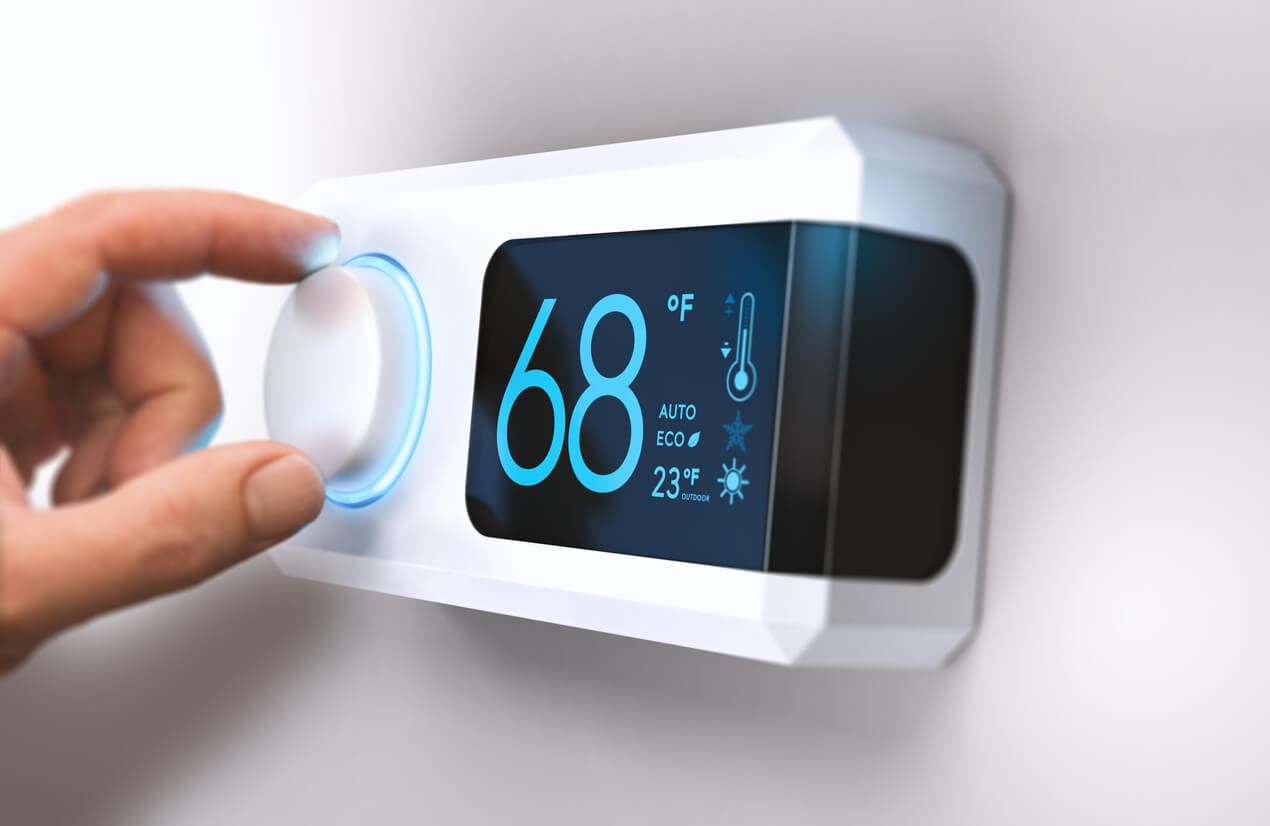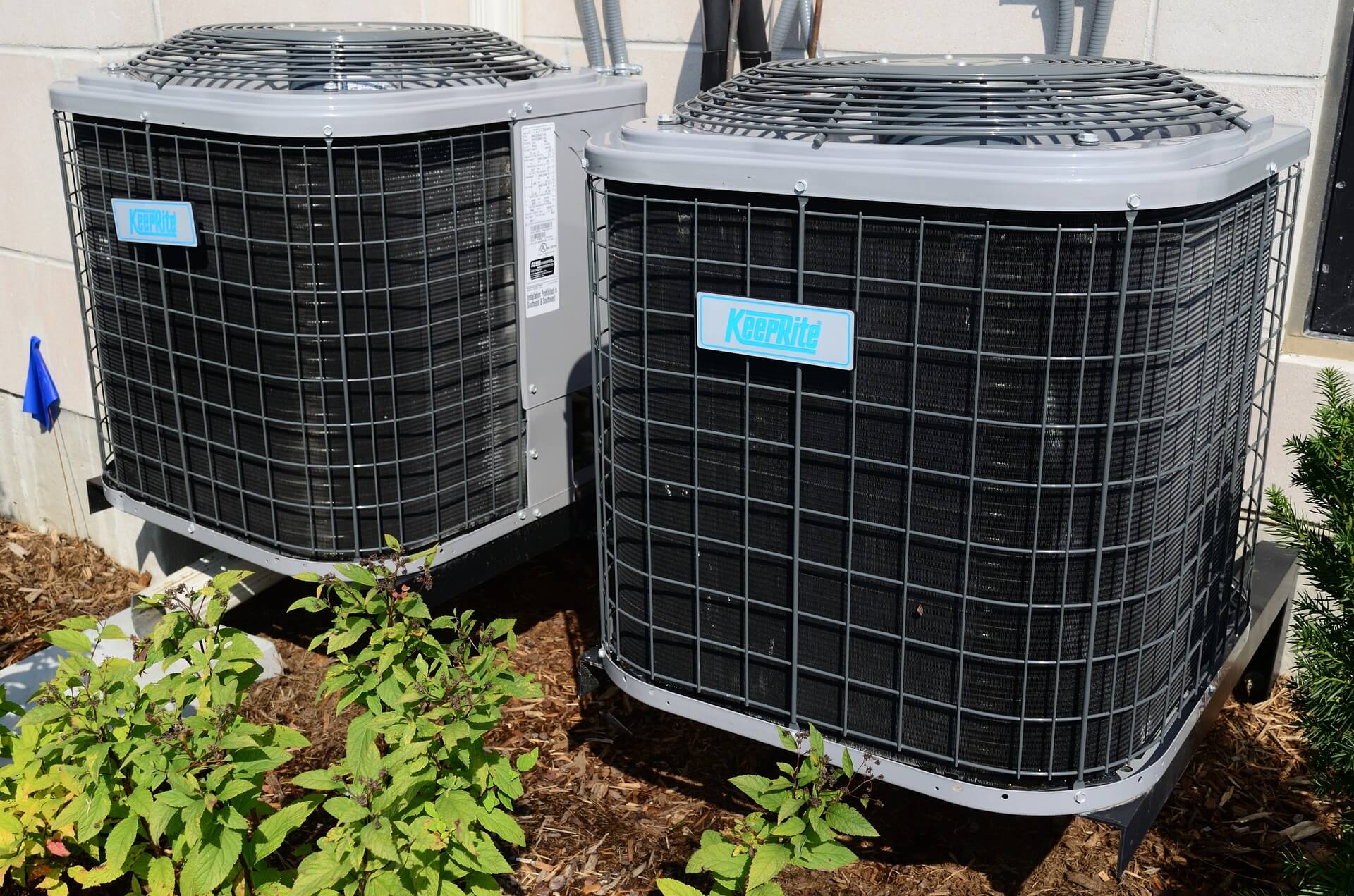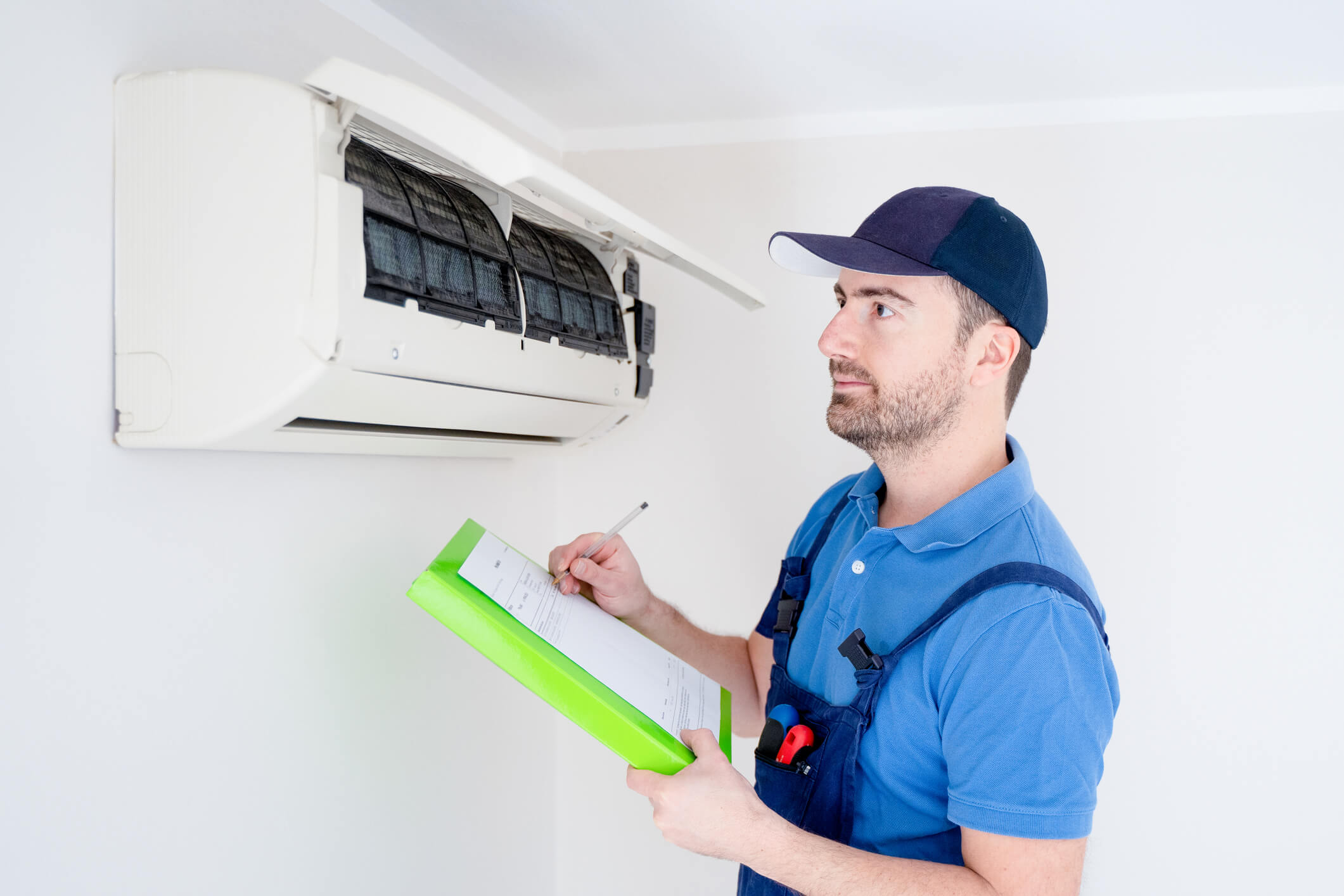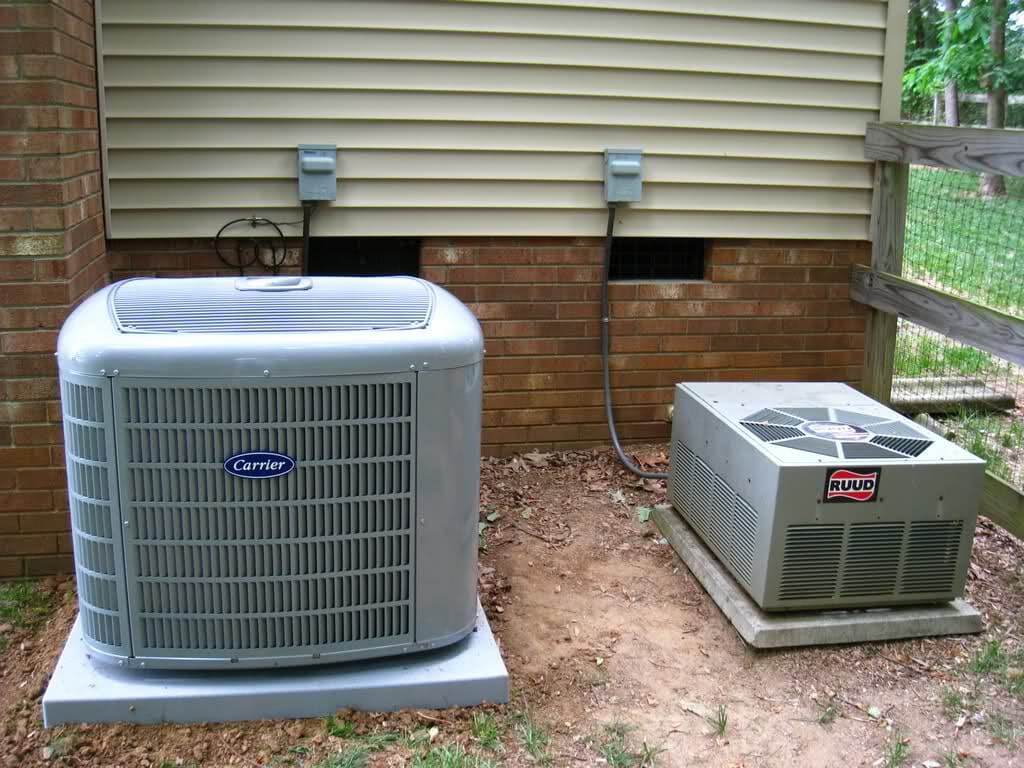Are you doing an HVAC project?
Modernize can pair you with three to four pros in your area, so you can compare options and save time and money.
Having lived in two places where my baby’s room never seemed to get air from the AC, it was not uncommon for the phrase “WHY is this room so hot?!” to come out of my mouth! There are common problems with simple solutions you can implement yourself, and there are bigger problems with solutions that require professional intervention. Let’s talk about them all.
Why Is My Room So Hot?
Dealing with a persistently hot room can be frustrating, especially when the rest of your home is comfortably cool.

Various factors could be at play, many of which relate to your HVAC system. Let’s explore some common reasons why your room might be hotter than the rest of the house:
Poor Airflow
If one room in your home is significantly hotter than others, it could be due to poor airflow. This might be caused by:
- Blocked Vents: Furniture or other objects blocking vents can restrict air circulation.
- Example: A large dresser placed in front of an air vent can significantly reduce the amount of cool air entering the room.
- Solution: Ensure all vents are clear of obstructions to allow maximum airflow.
- Closed Dampers: In some systems, dampers control the flow of air to different parts of the house. If a damper is closed or partially closed, it can limit airflow to specific rooms.
- Example: A damper in the ductwork might be closed or not fully open, reducing the air sent to a particular room.
- Solution: Locate and adjust the dampers to balance the airflow throughout your home.
- Dirty Filters: Clogged air filters reduce the efficiency of your HVAC system, restricting airflow throughout your home.
- Example: An HVAC filter clogged with dust and debris can hinder air movement and reduce cooling efficiency.
- Solution: Check and replace filters regularly to maintain proper airflow and system efficiency.
Insulation Issues
Inadequate insulation can cause a room to retain heat more than others. This is particularly common in:
- Older Homes: Older buildings might not have sufficient insulation by modern standards.
- Example: A home built in the 1960s may have thinner insulation compared to modern homes, leading to heat retention.
- Solution: Consider upgrading the insulation in your walls and attic to meet current standards.
- Attics and Basements: These areas often have different insulation requirements and may be more susceptible to temperature variations.
- Example: An attic with minimal insulation can get extremely hot in summer, affecting rooms directly below it.
- Solution: Add appropriate insulation to attics and basements to maintain consistent temperatures.
- Windows and Doors: Gaps and cracks around windows and doors can allow warm air to enter and cool air to escape.
- Example: Drafty windows can let in hot outside air, making the room warmer.
- Solution: Seal gaps with weatherstripping or caulk to improve insulation.
Ductwork Problems
The ducts in your HVAC system are responsible for delivering cool air to each room. Issues can arise if:
- Ducts Are Leaking: Leaks in the ductwork can cause cool air to escape before it reaches your room.
- Example: A small hole or gap in the duct can leak a significant amount of air, reducing the cooling effect.
- Solution: Inspect ductwork for leaks and seal them with duct tape or a special sealant.
- Ducts Are Poorly Designed: If the ducts are not properly designed or installed, some rooms may not receive adequate airflow.
- Example: Long duct runs or sharp bends can reduce airflow to distant rooms.
- Solution: A professional can evaluate and redesign the duct system to ensure even distribution of air.
- Disconnected Ducts: Sometimes, ducts can become disconnected or partially disconnected, causing a loss of air flow to specific rooms.
- Example: A loose duct joint in the attic might divert cool air away from its intended destination.
- Solution: Reconnect and secure all duct joints to ensure proper airflow.
Tips to Fix the Issue
Before calling in a professional, there are several steps you can take to try to resolve the “why is my room so hot” issue yourself. First, check and adjust the vents in the hot room to ensure they are open and unobstructed. Furniture or other objects can block vents and restrict air circulation, so make sure everything is clear. Additionally, you can redirect airflow by partially closing vents in cooler rooms, which can help push more air into the hotter room. Using vent deflectors can also help direct air more effectively into the problem area.
Next, inspect and replace your HVAC filters regularly. Dirty filters can significantly reduce the efficiency of your system and restrict airflow. Setting a reminder to check your filters every 1-3 months, depending on usage and the type of filter, can help maintain proper airflow and system efficiency. Improving insulation is another crucial step. Consider adding or upgrading insulation in the walls, attic, or basement, especially if you live in an older home. Sealing gaps around windows and doors with caulking or weatherstripping can prevent cool air from escaping and help maintain a consistent temperature.
Finally, examine your ductwork for visible signs of leaks or damage. Pay special attention to joints and connections, as these are common areas for leaks. If you find any leaks, sealing them with duct tape or a more permanent solution like mastic sealant can improve airflow. By taking these steps, you can address common issues that might be causing one room in your home to stay hot and improve the overall comfort and efficiency of your HVAC system.
What to Do If the Problem Can’t Be Fixed
If you’ve tried all the DIY solutions and the room remains uncomfortably hot, it might be time to consider alternative solutions or more extensive modifications. Here’s what you can do if the problem persists:
Find the Right Contractor for Your HVAC Project
Whether you’re ready to begin your project now or need some expert advice, our network of contractors are here to help. With a few simple questions, we’ll find the best local professionals for you
Consult a Professional HVAC Technician
A professional HVAC technician can provide a thorough assessment of your system and identify underlying issues that might not be apparent to the untrained eye. They have the tools and expertise to conduct comprehensive diagnostics, such as measuring airflow, checking for hidden duct leaks, and assessing the overall performance of your HVAC system. Sometimes, your HVAC system might be outdated or improperly sized for your home. An expert can suggest upgrades or replacements that will provide better cooling efficiency. Technicians can also adjust the dampers and fine-tune your system to ensure even distribution of air across all rooms.
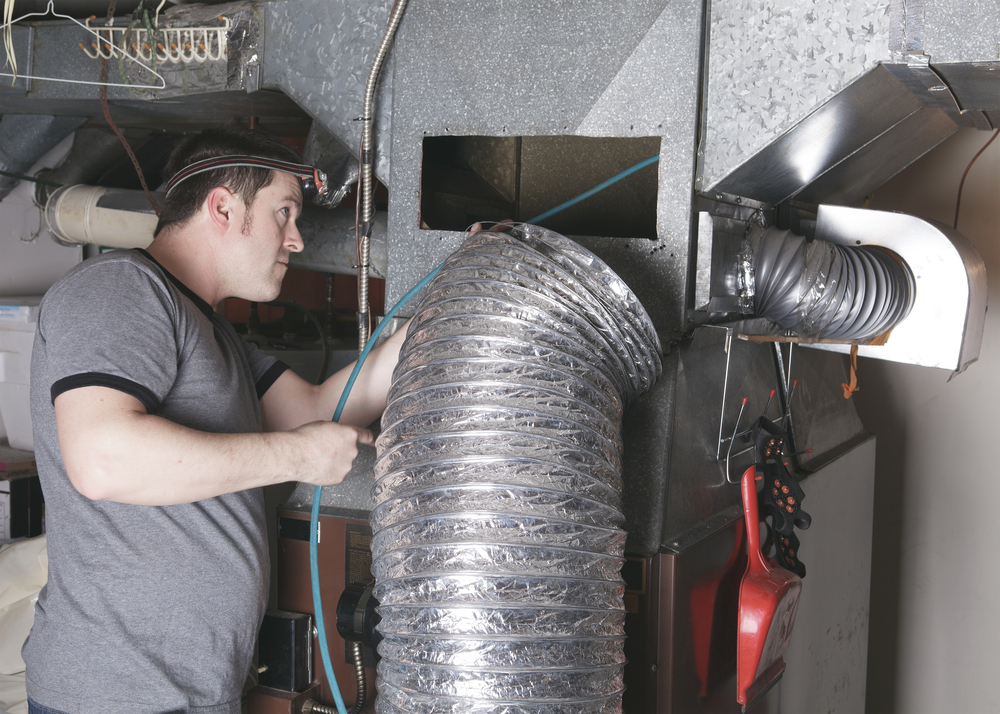
Consider Zoning Systems
If balancing the airflow doesn’t resolve the issue, installing a zoning system could be an effective solution. Zoning systems divide your home into separate areas, each with its own thermostat and dampers to control the airflow independently. This allows you to customize comfort levels by adjusting the temperature in specific areas of your home according to your preferences and improve efficiency by cooling only the areas in use.
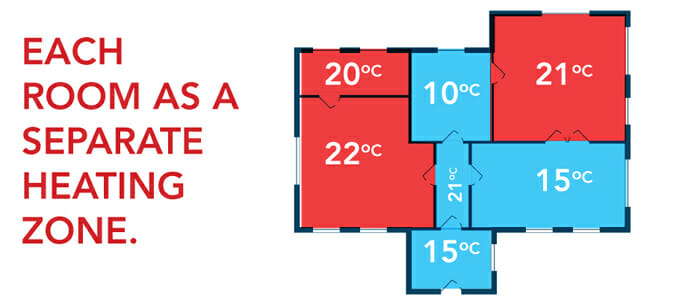
Supplement with Alternative Cooling Solutions
In some cases, supplemental cooling might be necessary, especially if structural changes are not feasible. Consider options like window or portable air conditioners, which can provide additional cooling for the problem room without overloading your central HVAC system. Installing ceiling fans can improve air circulation and help maintain a more consistent temperature. Additionally, using thermal curtains or blinds can block out heat from the sun and keep the room cooler.
Home Energy Audit
A home energy audit can provide valuable insights into how your home uses and loses energy. Professional auditors can identify insulation gaps and pinpoint areas with inadequate insulation or significant air leaks. They will evaluate the efficiency of your windows and doors and recommend upgrades if necessary. The audit will include a comprehensive report with prioritized recommendations for improving energy efficiency and comfort.
Consider Long-Term Home Improvements
If the issue persists and significantly impacts your comfort, it might be worth considering more substantial home improvements. Invest in high-quality insulation materials for your walls, attic, and basement to enhance overall thermal performance. Install energy-efficient windows that provide better insulation and reduce heat transfer. In cases where your HVAC system is outdated, a complete upgrade might be the best solution for long-term comfort and efficiency.
When to Call in a Professional
When you decide to bring in a professional, provide them with as much information as possible to help diagnose and fix the issue efficiently. Clearly explain which room is hotter, any patterns you’ve noticed (such as times of day when the problem is worse), and any temporary solutions you’ve attempted. Provide details about your HVAC system, including its make, model, age, and maintenance history. This information will enable the professional to offer a more accurate diagnosis and effective solution.
By exploring these options, you can address persistent temperature imbalances and ensure your home remains comfortable, regardless of the season. Don’t hesitate to invest in professional help and long-term solutions for a more efficient and enjoyable living space.
Find the Right Contractor for Your HVAC Project
Whether you’re ready to begin your project now or need some expert advice, our network of contractors are here to help. With a few simple questions, we’ll find the best local professionals for you
Reviews from Real Homeowners
Welcome to Homeowner Resources! We are the Modernize blog. Modernize pairs more than 3 million homeowners a year with pre-vetted contractors in their area. This blog started because we believe homeowners should know everything about their homes, from how their HVAC works to which front door colors they might love. On Homeowner Resources, you can find information on every part of your home, right down to how you can negotiate with contractors to get the best price. Here's more about the blog.
Need a contractor? Learn more about how Modernize finds the right pro for you.
